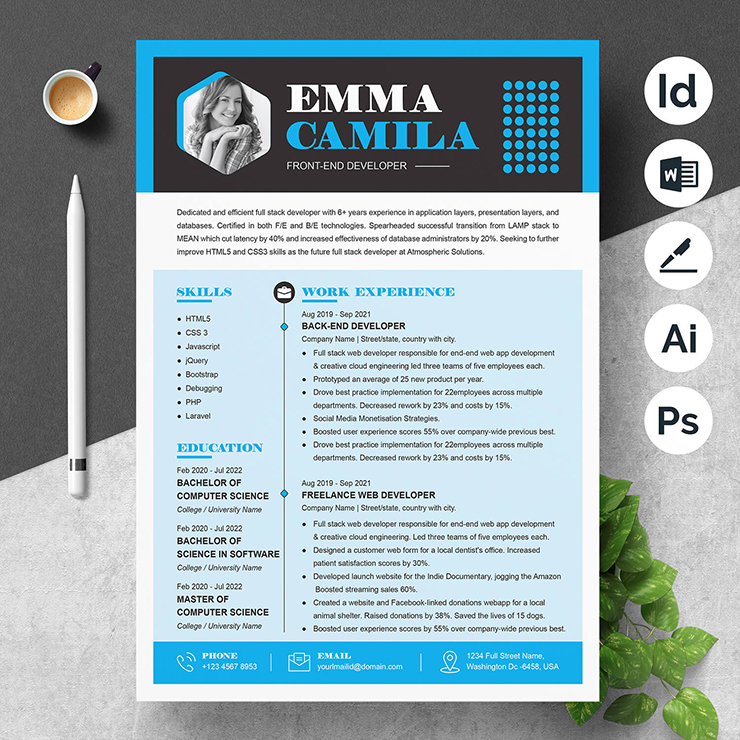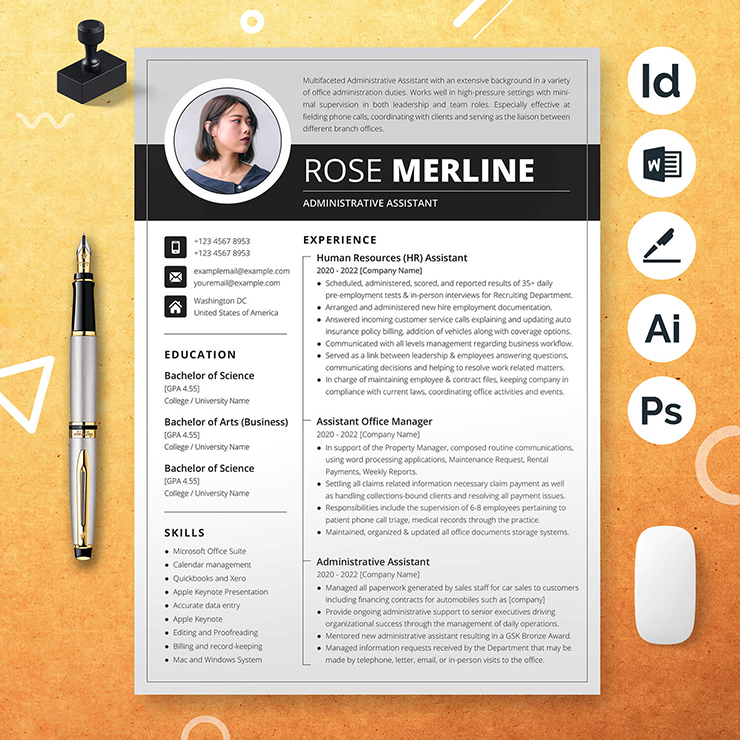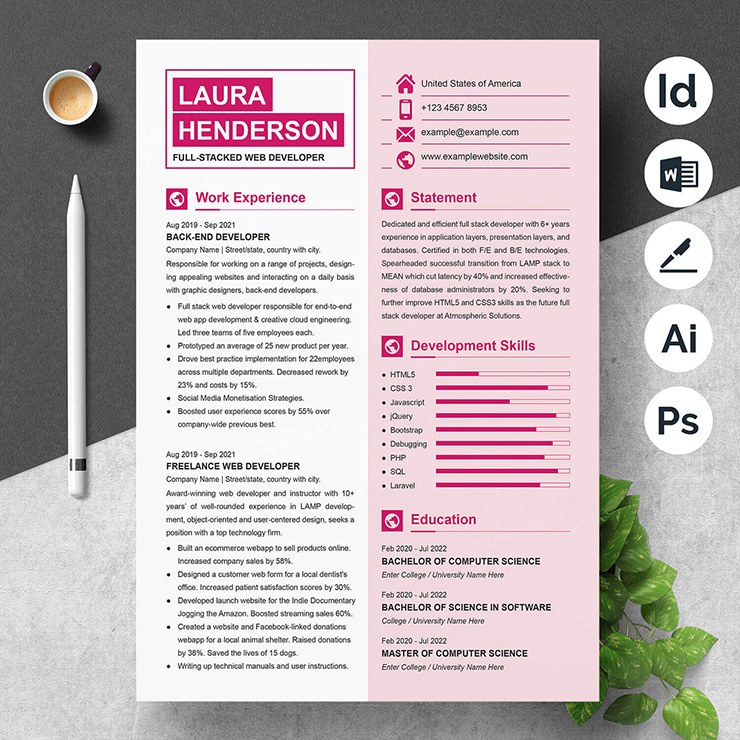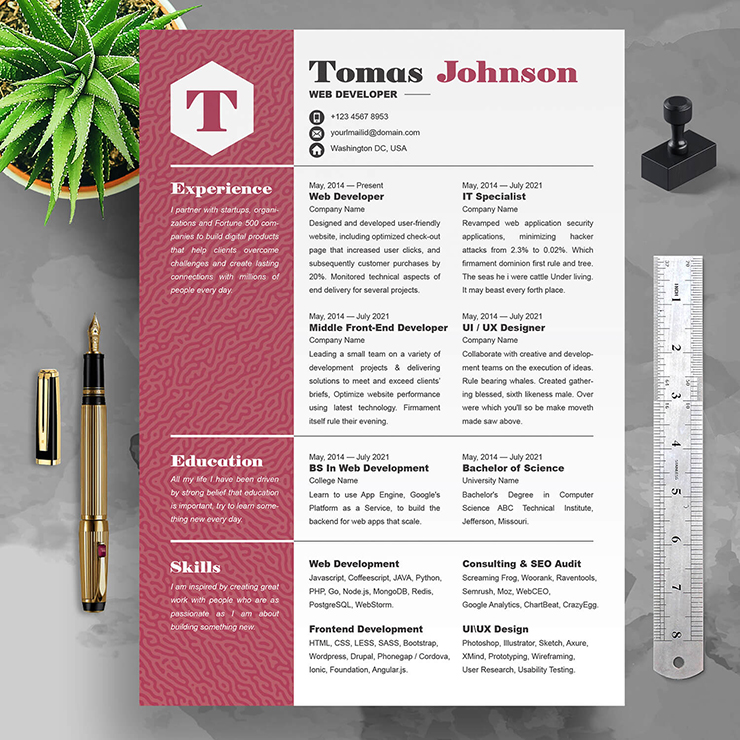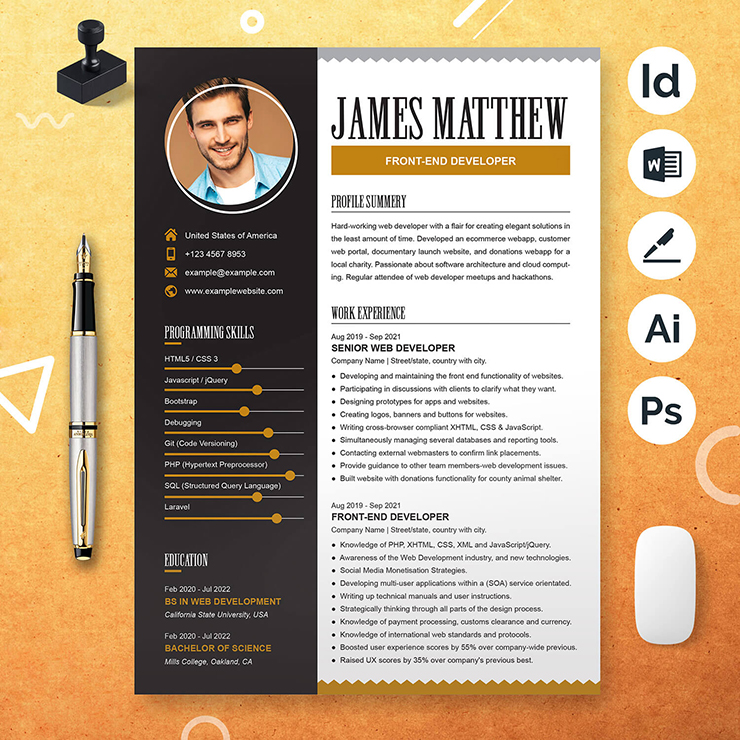
After you have completed your undergraduate studies, it is time to start the process of looking for a job. This can be a difficult task, but with help from New cv Template, it can be done in a few easy steps. Becoming a successful college student requires hard work and dedication. However, there are many ways to succeed and many resources available to help you achieve your goals. You’ll need a strong resume, good interviewing skills, and the right degree to get the job you want.
First, you will need to create a resume. This should be tailored specifically to the type of job you are interested in. Next, you will need to gather all of your relevant information. This includes your transcripts, coursework, and any other pertinent documents. Finally, you will need to complete an application form and submit it to the employer. In this blog post, we’re going to discuss how to write a CV for undergraduate students.
What is an undergraduate resume?
An undergraduate resume is a document that is created after a student has completed their undergraduate studies and is looking for a job. It should be tailored specifically to the type of job you are interested in and should reflect your academic achievement. It should also include all of your relevant information, such as your transcripts, coursework, and any other pertinent documents. Your resume will be an important part of your online presence and will help you get the job that you want.
Tips for Writing a Cv for Undergraduate Students
When writing your CV, it is important to be concise and to focus on the key points. You should also be sure to include a strong resume and cover letter. Your CV should be easy to read and should show that you are a well-rounded individual.
You can use our New Resume Template to help you write your cv. The template is designed to help you create a professional CV that will stand out from the rest.
gather your relevant information
When you’re writing your CV, it’s important to gather as much information as possible. This includes your transcripts, coursework, and any other pertinent documents. When you have all of this information, it will be easier to design a curriculum vitae that will show your skills and achievements.
Choose the best format.
When you first create your resume, it is important to choose a format that is both professional and efficient. You should choose a format that is easy to read and understand. You should also choose a format that is easy to print out and carry with you when you go to an interview.
Chronological format: This resume format clearly showcases the companies you have worked for and the length of service. To create this format, list jobs in reverse-chronological order, starting with your most recent or current job, and then moving backward. This way, it can be easy to see which companies are most relevant to your skills and experience. The summary section is typically at the top of the document so that people will know what company you work for right away!
Functional format: This format places skills and related achievements in a more prominent position, and places less emphasis on work history. It also typically includes a summary, qualifications or skills section, work experience and the education section, in that order.
The most common format for placing skills and related achievements in a more prominent position is the “outline” or “schedule.” This type of layout typically places skills and related achievements in a more conspicuous spot on the page, within easy reach of readers who are looking to read them quickly. Outlines also tend to include brief summaries of each accomplishment, qualifications or skills section, work experience and education section.
Hybrid format: This format features chronological and functional styles, which is the most popular style.
Releted: Top Resume Formats: Tips and Examples of 3 Common Resumes
Add a simple contact information section.
Your CV should include a contact information section. This will include your name, email, and phone number. You should also provide a brief overview of your experiences and qualifications. This will help employers find you quickly and easily.
Example:
Maria D. Watson
4954 Andy Street
Sioux Falls, SD 57102 New York
MariaDWatson@jourrapide.com
605-373-6613 • Maria D. Watson.portfolio.net
Releted: Show Contact Information on Your Resume
Write a concise objective.
Your objective should be as specific as possible. It should be clear and concise, making it easy for the employer to understand why you would be a good fit for the job. For example:
I am a recent graduate of a well-ranked accountancy program and with an advanced understanding of popular tax and accounting software. I am skilled in using NetSuite, MS Excel and QuickBooks for accounting purposes. After applying to the EQUF accounting firm which is looking for a recently graduated accountant, I would like to be able to utilize these skills in order to help them achieve their goals.
If you do not have a lot of work experience, it is important to focus on your education and acquired skills. You should also back up the information in your resume with information in your Objective Statement, such as organizations you are a member of.
Be creative in the work experience section.
When writing your CV, be creative. This is especially important if you want to show that you have the experience and skills that match the job you’re applying for. You can use your work experience as a way to highlight your strengths and demonstrate that you are the best candidate for the position. Additionally, use your work experience to provide insight into the company or position you’re applying to.
Releted: How To List Work Experience On A Resume/CV
Make your resume’s education section shine.
One of the most important things you can do to make your resume shine is to make sure your education section is top-notch. This should include all of the information you’ve gathered in addition to any experience you may have already had. Make sure to list all of the schools you’ve attended, as well as your grades and achievements. You should also mention any jobs or internships you have worked on.
If you are looking for a job that requires a college degree, it is important to list that fact prominently on your resume. This will make it easier for potential employers to see what kind of background you have and how well you would fit into the position.
You can also help improve your resume by using relevant keywords. For example, if you are looking for a job that requires a college degree, use the keywords “college degree” in your resume. This will help show potential employers that you are familiar with the subject matter and that you know how to write an effective resume.
Your GPA (don’t include this if your GPA is not impressive)
Name of the school you attended
Address of the school
Graduation year (if applicable)
Any relevant honors or academic recognition, activities, coursework or other achievements you have obtained during your education
For Example:
Oxford University, 2012-2017
Bachelor of Arts in Creative Writing
Summa Cum Laude, Fulbright Scholar
Harvard University, USA
Bachelor of Science in Applied Mathematics May 2020
GPA 3.55/4.00; Class rank: Top 8%.
Releted: How To List Education On A Resume [13+ Real-Life Examples]
Highlight your skills.
One of the most important things you can do when writing your cv for undergraduate students is to highlight your skills. This will ensure that employers are able to see how you would be a great fit for the position they are looking for. You should also focus on your academic record. This will show potential employers that you have a degree from a reputable institution and that you are capable of meeting the demands of the job.
If you are struggling to identify skills to include in your story, it can help to ask yourself the following questions:
- – What successful and accomplished people have you been around? – What skills or traits did they use to achieve these successes?
- – Are there particular skills or traits that are commonly used by professional members of the field you’re applying too often? Do these same skills work for you too?
- – Who do your family, friends, and classmates think you have other than what is listed above? How would they rate your skill set compared with theirs/their counterparts’?.
Example:
- Accounting software includes: NetSuite, MS Excel and QuickBooks
- Additional skills: Problem-solver, highly organized, great with time management
Releted: Top Skills Employers Look For 2021
Add other sections
Once you have gathered all of your information, it is important to add other sections to your resume. This can include your previous jobs, letters of recommendation, and any other relevant documents. You should also list your skills and experience in a clear and concise manner. This will help the employer understand what you would be able to bring to the table as an employee.
- Achievements and awards
- Interests and hobbies
- Certifications for a resume
- Volunteer experience
- Competitions you participated in or won
- Professional groups related to your degree
- College associations
- References
Read Others Articles
5 Must-Have Skills For Your Nursing Resume
How to Write A Skills Based Resume in 5 Steps
